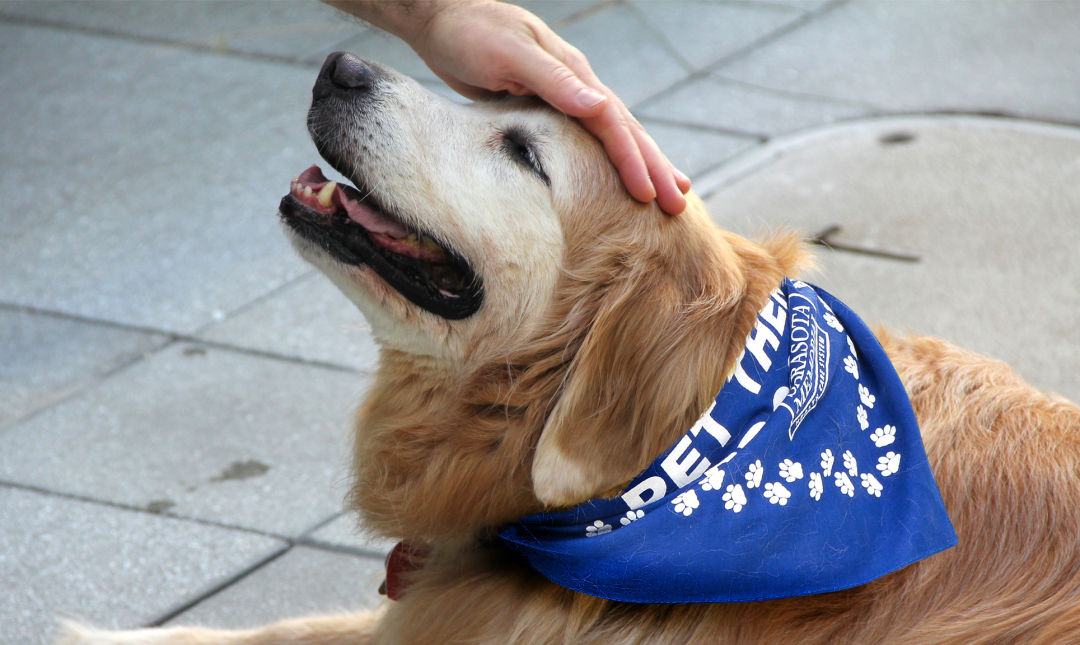Prescribing Canine Cuddles Is Good Medicine

Zoe, a longtime Sarasota Memorial pet therapy dog, brought many smiles to cancer patients during her tenure as a volunteer “therapist” at Sarasota Memorial’s Cancer Institute.
The human-animal connection has been recognized for thousands of years. This powerful physical, emotional and psychological bond has long influenced health and wellness for both humans and animals.
Whether you have a pet at home or have been prescribed “fur therapy” as part of a medical care plan, research shows that spending time with animals can be invaluable to your overall health—and support healing in ways that medicine cannot.
What is Pet Therapy?
Pet therapy, or animal-assisted therapy, is the intentional use of animal interaction to support the healing and rehabilitation of people with acute or chronic health conditions, mental-health concerns or other health challenges. This type of therapeutic intervention date back to the ancient Greeks.
Simply spending time with animals is proven to decrease stress and increase feelings of peace, calm and optimism for pet therapy participants. Physical benefits often include more regulated breathing, stabilized blood pressure and reduced pain. Research shows that including pet therapy in medical treatment plans can produce better outcomes for rehabilitation patients, as well as improved socialization skills.
How Does Pet Therapy Work?
Animal-assisted therapy can take place in a home, work, community or healthcare setting. During a session, the animal typically sits or lies down beside the therapy participant. They can be petted, held or take a more active role in occupational, physical, speech and mental health therapies.
In healthcare, the most common “pet therapists” are dogs. It’s important to point out that pet therapy animals are not the same as service or emotional support animals. Pet therapy dogs must be screened for temperament to determine whether they can maintain a calm demeanor despite stimuli exposure. Once they pass the screening and current immunizations are verified, they are certified with a handler (usually their owner) to facilitate animal-assisted therapy sessions. Most dogs are 1 year or older before they begin their service as therapy animals.
Pet Therapy at Sarasota Memorial
Sarasota Memorial knows pet therapy is good medicine! For more than 20 years, Sarasota Memorial Hospital has offered pet therapy for inpatients recovering from complex conditions, including those in the Pediatric, Rehab and Cancer units, as well as those at the hospital’s Nursing & Rehabilitation Center. Sarasota Memorial’s current staff of furry therapists includes Webster, Daisy, Finnegan, Henry, Kirby, Parker, Teddy, Zorro, Scout and others.
If you’d like to see for yourself how canine cuddles can boost mood and health, check out the hospital’s free Pet Paws wellness events, which are held weekly in HealthConnection or the SMH Courtyard on the main campus. Offered in collaboration with the Humane Society of Sarasota County, Pet Paws is open to hospital visitors, staff and anyone who can stop by. Check the SMH calendar for upcoming dates.